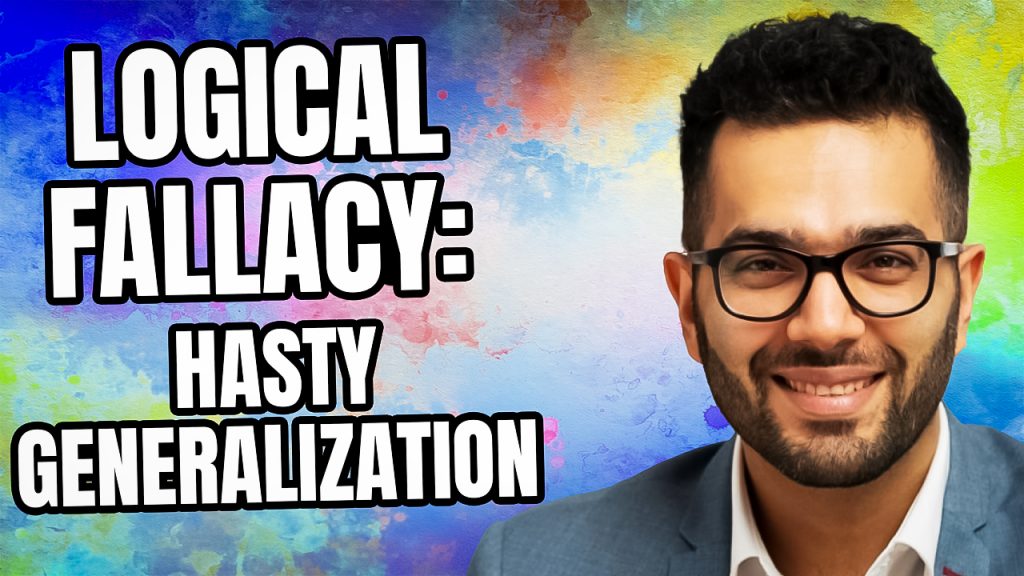Logical Fallacy: Hasty Generalization

Hasty generalization is a logical fallacy that occurs when someone draws a conclusion about a
group or a population based on a small or unrepresentative sample. It is a common mistake in
reasoning that can lead to incorrect assumptions and stereotypes. Hasty generalization is a type
of fallacy that can occur in a variety of contexts, from everyday conversations to academic
research. This essay will explore the concept of hasty generalization, its examples, and how to
avoid committing this logical fallacy.
Hasty generalization is a logical fallacy that occurs when someone draws a conclusion about a
group based on a small or unrepresentative sample. It is a type of inductive reasoning that
involves making a generalization based on limited evidence. Hasty generalization is often used
to support stereotypes and prejudices, and it can lead to faulty or inaccurate conclusions.
One of the most common examples of hasty generalization is the stereotype that all Asians are
good at math. This stereotype is based on the observation that many Asians excel in math and
science, but it ignores the fact that not all Asians are good at math. This stereotype can lead to
the assumption that anyone who looks Asian must be good at math, which is a fallacious
conclusion.
Another example of hasty generalization is the belief that all politicians are corrupt. This
stereotype is based on the observation that many politicians engage in unethical behavior, but it
ignores the fact that not all politicians are corrupt. This stereotype can lead to the assumption
that anyone who is a politician must be corrupt, which is also a fallacious conclusion.
Hasty generalization can also occur in scientific research. For example, a scientist may
conclude that a certain drug is effective based on a small sample size of patients. This
conclusion may be based on the assumption that the sample is representative of the larger
population, but this may not be the case. This type of hasty generalization can lead to faulty
conclusions that may be harmful to patients.
Hasty generalization can be avoided by collecting and analyzing data from a representative
sample. A representative sample is one that accurately reflects the population being studied,
and it should be large enough to provide reliable data. For example, if a researcher wants to
study the effectiveness of a new drug, they should use a large and diverse sample of patients to
ensure that their conclusions are valid.
Another way to avoid hasty generalization is to avoid making assumptions based on stereotypes
or prejudices. Stereotypes and prejudices are often based on limited or incomplete information,
and they can lead to faulty conclusions. Instead, it is important to approach each situation with
an open mind and to collect as much data as possible before making any conclusions.
Finally, it is important to consider alternative explanations for any observed patterns or trends.
For example, if a researcher observes a correlation between two variables, they should consider
other factors that may be influencing the relationship. This can help to avoid hasty
generalization and ensure that the conclusions are based on sound reasoning.
In conclusion, hasty generalization is a logical fallacy that can lead to faulty conclusions and
stereotypes. It occurs when someone draws a conclusion about a group based on a small or
unrepresentative sample. Hasty generalization can occur in everyday conversations, academic
research, and many other contexts. It can be avoided by collecting data from a representative
sample, avoiding stereotypes and prejudices, and considering alternative explanations for any
observed patterns or trends. By avoiding hasty generalization, we can ensure that our
conclusions are based on sound reasoning and accurate data.
This Post is Brought To You By BetterHelp